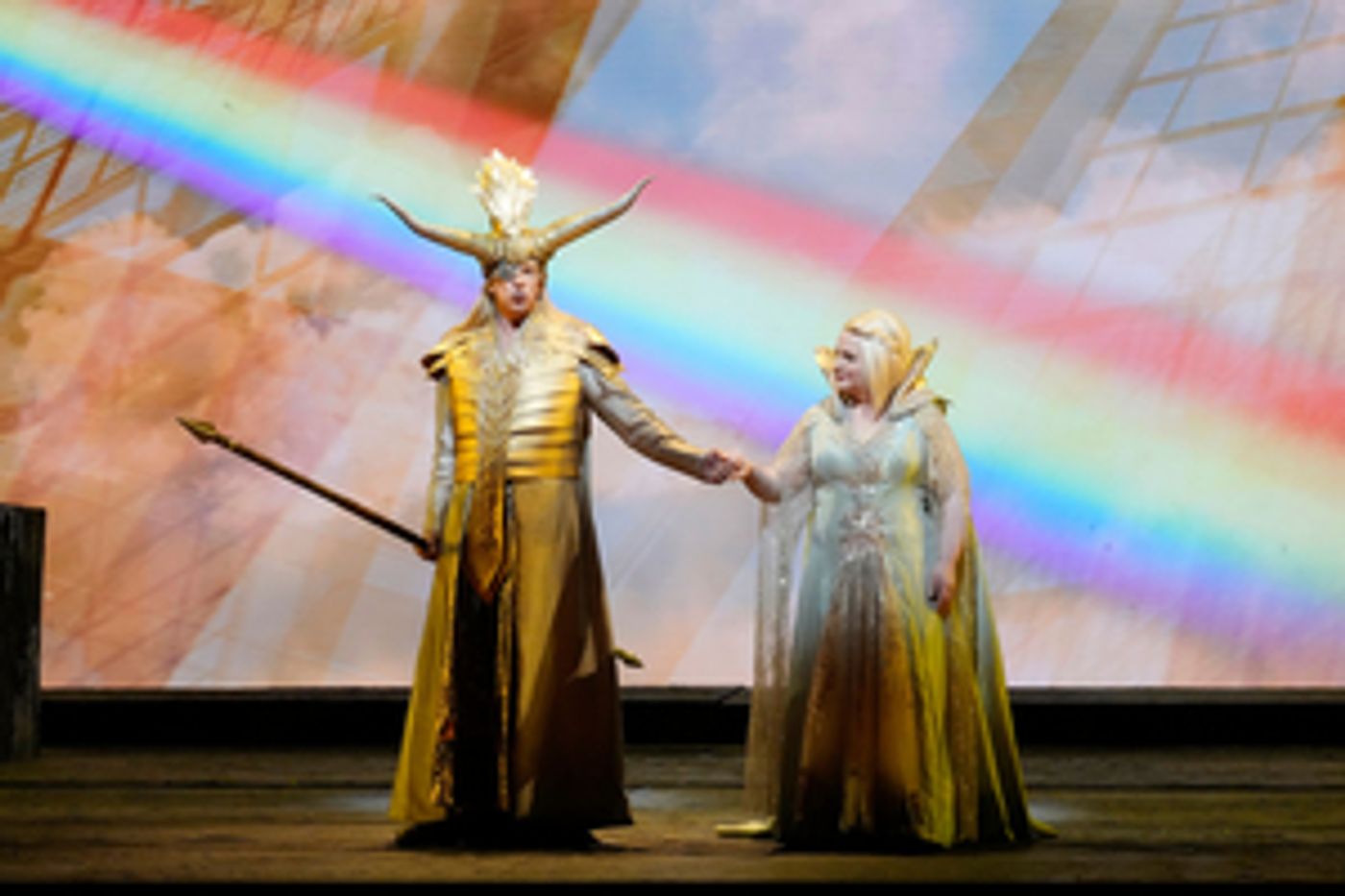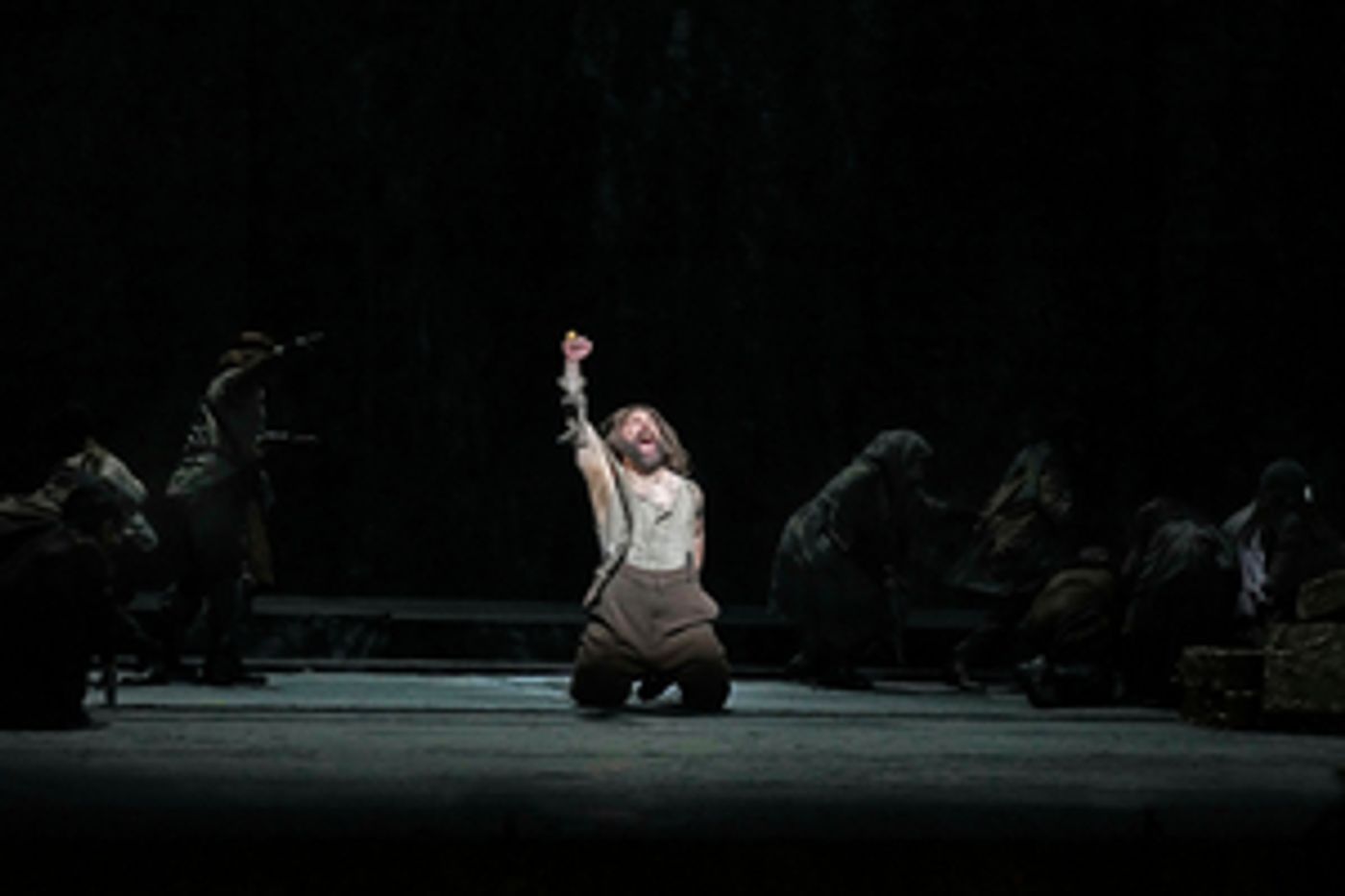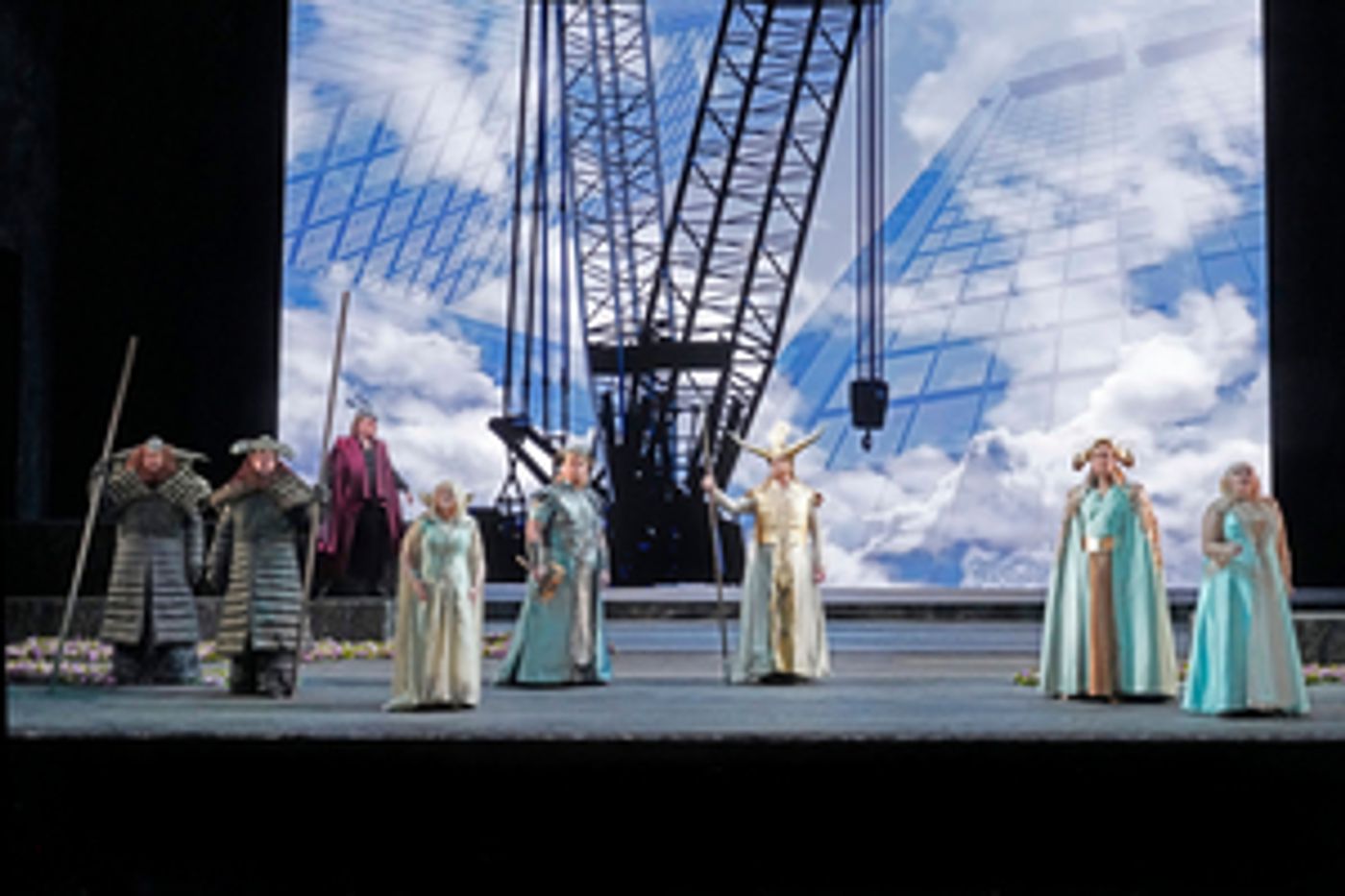Review: Thar's Gold – DAS RHEINGOLD – at Atlanta Opera in Tomer Zvulun's Entry into 'The Ring'
Splendid Cast and Production, Thrilling Orchestra under Fagen, Make Wagner’s Opera Fly

There are no supernatural women arriving on horseback to escort slain warriors to the afterlife. There's just a trio of mermaids, a couple of giants and a loveless dwarf, along with a bunch of gods, demi-gods and grotesque humans in Richard Wagner's DAS RHEINGOLD, the first part of the composer's Ring cycle (officially DER RING DES NIBELUNGEN).
When it was done, Saturday night's audience stayed to cheer the opening of General and Artistic Director Tomer Zvulun's splendidly conceived production, after nearly three intermission-less hours.
Ring-heads--operaphiles who love everything about Wagner's cycle of operas that spans 15-ish hours and four nights--wouldn't give up a moment of the rich story-telling and music that's the Ring provides. Can't imagine sitting through such a long story? Think of it as a mini-series: After all, it's not so far removed from HBO's "Succession" or the multi-film "Lord of the Rings," in its exploration of power, greed, curses, love and hate, introducing early on elements that will play out as the tale move along.

Ken Howard/Atlanta Opera
The production looked very good, too. Erhard Rom's creatively designed scenery, with brilliant projections, and the artful lighting of Robert Wierzel, are indispensable to the success of the evening, as are Mattie Ullrich's evocative, sensitively drawn costumes, looking luxurious or bedraggled, as called for.
It's not just Wagner's own libretto and the look of the stage that are so stunning. It's the music, the large cast of acting singers and the marvelous orchestra who will just bowl you over.
First, there are the gods at the center of the opera--indeed, the center of the whole cycle.

Ken Howard/Atlanta Opera
At the top of the list is Wotan, ruler of the gods and a familiar figure to anyone who follows today's politics.
He's a man who will "forget" his pledges to allies and stiff his contractors once they have served their purpose, here, building the dwelling place of the gods, Valhalla.
The role is demanding but bass-baritone Greer Grimsley captures all the drama and ugliness of the role, commanding the stage. He's sung the role many times, in many places, including the Met in New York, and you won't forget him.
His wife, Fricka, goddess of family values, is sung by mezzo Elizabeth DeShong, with vocalism that is lovely and smart. (I recently heard her in Handel's ALCINA and she brought some of that savior faire to Fricka.) She doesn't let her husband get away with his tricks--he denies, for instance, that he was serious when he promised her sister, Freia (gorgeously sung by soprano Jessica Faselt), as payment for the giants (the "contractors" of Valhalla)--and is as controlling with him as she is with Wagner's exquisite music. The giants, Fasolt and Fafner, are sung wisely and strongly by bass Kristinn Sigmundsson and bass-baritone Daniel Sumegi, as being as manipulative as Wotan, yet not up to his scheming and pay the price.

Of the other gods, I was particularly taken by tenor Adam Diegel's Froh, but bass-baritone Joseph Barron's Donner was in fine form as well. Mezzo Ronnita Miller was a mellow Erda, earth mother and goddess of earthly wisdom, with a breathtaking warning to Wotan of what lay ahead for the gods
But, wait. It's not just gods that carry this story along. Key to the story is Alberich (the able baritone Zachary Nelson), ostensibly a dwarf but no attempt is made to portray him as such, however, except perhaps in his thinking, which is short-sighted and mean-spirited. He steals the gold from the Rhinemaidens (wonderfully performed by soprano Cadie Bryan, soprano Alexandra Razskazoff and, especially mezzo Gretchen Krupp) who guard it and keep it from being forged into the ring that will give the owner unimaginable power.
Indeed, giving up the possibility of love to steal and forge the gold, Alberich uses the power it gives him to force his countrymen (the Nibelungs), including his brother Mime (a thoughtful performance by tenor Julius Ahn), to mine gold that bestows incredible wealth on him--which Wotan and his advisor, the demigod of fire, Loge (Richard Cox. using his tart tenor to portray his manipulative character), will eventually steal. Alberich's self-pitying aria is as striking as is his curse to Wotan for taking the ring.
Last, but hardly least, there is the Atlanta Opera's orchestra under Music Director Fagen. After all, what would Wagner's music be without the ensemble that could do it justice? They gave a grand performance at the production's opening that made the long stretches of music pass by in an instant.
I must admit that the lack of an intermission in DAS RHEINGOLD always has me--and many other opera lovers--somewhat apprehensive about making it all the way through to the curtain calls. Happily, at the premiere, there were very few people in the large hall whom I noticed heading for the (ahem) hills before it was over. Indeed, there was a full house to cheer the performers and production team for the exciting night they had given us.
The production was a co-venture with Dallas Opera, where it debuted with a different cast in February but still under Zvulun's taut direction.
Reader Reviews
Videos

